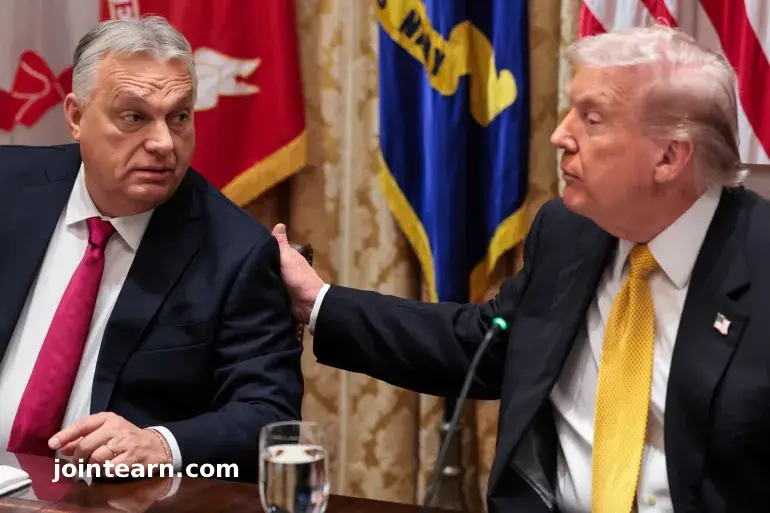
Hungary Seeks Exemption from US Sanctions on Russian Oil and Gas
Hungary’s government announced that it has secured an “indefinite exemption” from United States sanctions on Russian oil and gas imports, following a bilateral meeting between Prime Minister Viktor Orban and US President Donald Trump at the White House on November 7, 2025.
The waiver concerns Russian natural gas supplied via the TurkStream pipeline and Russian oil transported through the Druzhba pipeline. Hungary has long relied heavily on Russian energy, with 74 percent of its gas and 86 percent of its oil coming from Russia in 2024, according to International Monetary Fund (IMF) data.
Conflicting Statements Over Waiver Duration
After the White House meeting, Orban told Hungarian media that Budapest had received a “complete exemption from sanctions” on Russian energy shipments. Later, Foreign Minister Peter Szijjarto reinforced the claim on Facebook, asserting that Hungary would face no sanctions for an indefinite period.
However, a White House official clarified to Reuters that the exemption is valid for one year, not indefinitely. The official emphasized that Hungary had committed to diversifying its energy sources, including $600 million in contracts to buy US liquefied natural gas (LNG).
This discrepancy highlights tensions between Budapest and Washington over the scope and duration of the sanctions relief, as Hungary navigates its energy dependence on Russia while maintaining strong ties with the US.
Energy Security and Economic Considerations
Hungary’s reliance on Russian energy is critical to its economy, especially with a national election approaching next year. Prime Minister Orban has consistently resisted EU pressure to cut ties with Moscow over the ongoing Ukraine conflict, citing the risk of surging energy prices.
Orban warned that, without the sanctions exemption, Hungary would face soaring energy costs, a spike in unemployment, and an unsustainable rise in household and business expenses.
Orban’s Diplomatic Balancing Act
Prime Minister Orban has maintained a unique diplomatic stance, cultivating close relations with both Moscow and Washington. He even proposed hosting a Trump-Putin summit in Budapest, although President Trump called off the meeting in October and imposed sanctions on Moscow for the first time during his presidency.
The Hungarian government’s energy strategy illustrates Orban’s attempt to protect national economic interests while navigating complex international sanctions regimes.
Implications for EU and Global Energy Politics
The waiver comes amid broader EU and US sanctions on Russia, including restrictions on major Russian energy companies Lukoil and Rosneft. Analysts warn that Hungary’s exemption may undermine EU cohesion on sanctions enforcement while highlighting the challenges of balancing energy security and geopolitical pressure.
Experts also note that Hungary’s reliance on Russian oil and gas could expose the country to supply disruptions, making the diversification of energy imports, particularly US LNG, a key element of its long-term strategy.


Leave a Reply